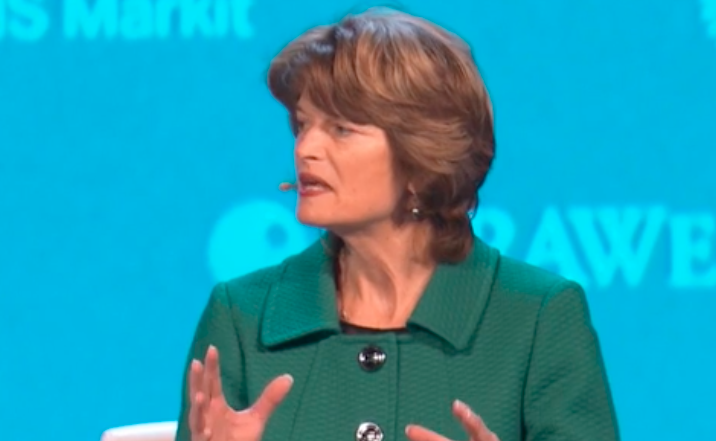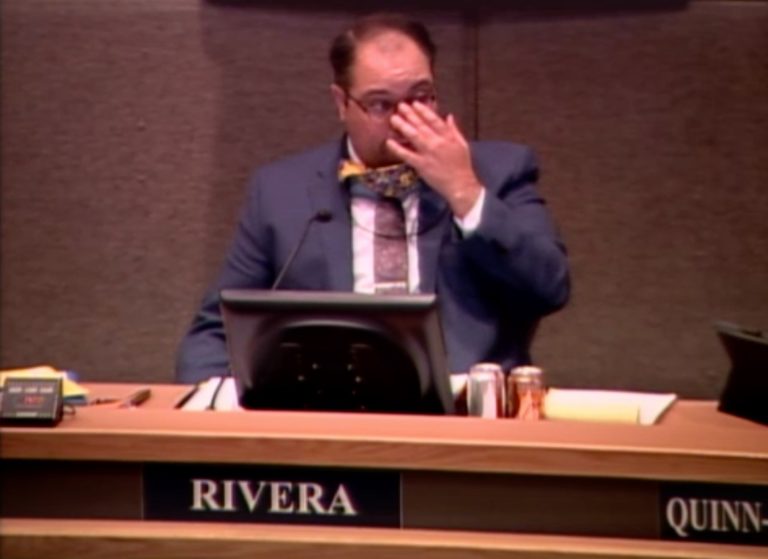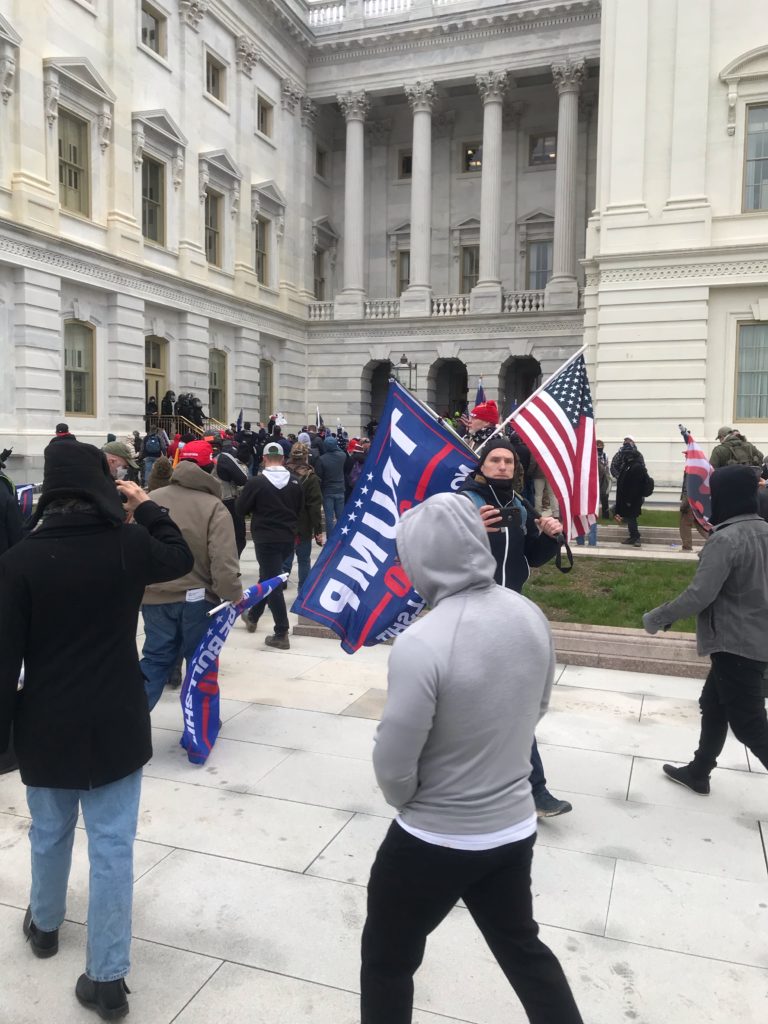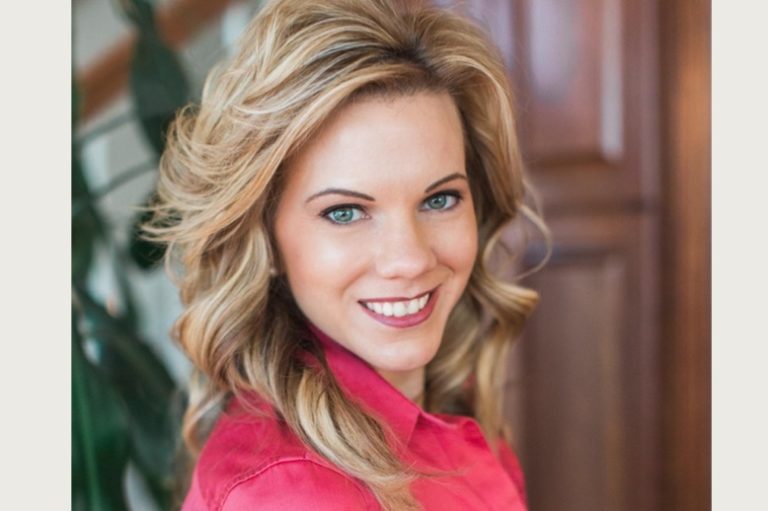By ART CHANCE
Note: I wrote this in early 2007 as Barack Obama took office. I was consistently a front-pager on RedState.com back in those days and this ran on the front page for weeks. Substitute any reference to Barack Obama with Biden – Harris and it remains relevant. Some of it is a little dated, as in nobody uses Blackberries anymore; back then they were the ultimate status symbol in government. – AC
The real Homeland exists in the states and local governments where Republicans still govern. Right now at the national level, we have no airspeed, no altitude, and no ideas. It’s going to be a while before we fly nationally. But, we do still govern about half the states and a lot of local governments. So, how do we defend this homeland?
First, a Republican officeholder in a safely Red state must understand that the fact that s/he has a good hold on his office doesn’t really mean much anymore.
Every office has been nationalized and that rag-tag band of greenies or union organizers that you could safely ignore in the past now have almost unlimited funds and the full power of the federal government behind them. So, here’s a to-do list for Red state officeholders.
Take out the trash! Get the holdover Democrats out of your government. Most state and local governments were either built by Democrats or model the federal government, which was built by Democrats.
No Republican could find enough loyal competent Republicans to fill all the political appointments in a Democrat-built government so they put their friends in the visible places and in places where they really need change and otherwise leave the government in the hands of Democrats.
Then they wonder why they’re constantly leaked, thwarted, and sabotaged. Now, when that a Republican got elected, some “friend” told him/her that he couldn’t fire too many people because it would be too disruptive and the government had to be kept running smoothly. That is an outright lie. The very hardest thing you could try to do is to stop a government from running. The only thing that was threatened with disruption was that “friend’s” contact list in the bureaucracy.
Fire everybody that you have a colorable legal right to fire, and a few extra just to show you can; God and the courts can sort it out. The left/media will whine and snivel about how the heartless Republicans savaged these dedicated public servants and they’ll probably have somebody’s wife with cancer who just lost her health insurance on the 6 pm news the night you do it. It’ll all be lies but in this game lies are better than the truth if you can get fools to believe them. You just stay the course, say you’re going in a new direction, and let them bleat and wail. The news cycle is very short and it won’t be long before a car chase, a missing baby, or a celebrity sex scandal chases those selfless former public servants off the news.
Don’t be coy about this and use Gov. Palin’s root canal over “Troopergate” as your what-not-to-do manual. The rule for true political appointees is “any reason, no reason, but not an illegal reason.” No reason is best; just say you’re going in a new direction and you’re putting in a new management scheme. And don’t do anything else. Every single wrongful or constructive discharge involving a high level employee I ever lost, I lost because somebody in management said to somebody, “I’m going to get that SOB.”
Positions are better left vacant than filled with holdover Democrats; the bureaucrats will keep it running just because it is easier to keep it running than to restart it if it is stopped. Governments run in spite of political appointees, not because of them. Most governments have a tool called “acting status” with which you can give the highest career ‘crat something like the pay of the fired appointee. They’ll appreciate it and appreciative people tend towards loyalty.
Use your limited supply of loyal competent Republicans to control the money, people, and stuff of the government and to run the places where you most need change. Do not put the general counsel of a horse breeding association in charge of a major function because he is a good ole boy who raised some money for somebody. You’ll have enough trouble without defending incompetence. Likewise, friends’ kids may be fine for decorating high-level offices but don’t give them real jobs.
Get unwired. Immediately prohibit all but de minimis personal use of government electronic resources such as computers, faxes, phones, PDAs, etc. and give notice that employees have no expectation of privacy in their use of such resources.
A blanket prohibition is pointless; your employees are going to take calls from their kids and get the grocery list by email; let them do it but the price is their grocery list, or the date they made, is a public record.
Put the best bad thoughts and bandwidth monitors you can buy on your IT systems and fire a few people for porn and gambling. Make smoke and noise doing it and you won’t have to do many. This won’t stop your employees from cc’ing their favorite reporter with a copy of a letter or memo, but it will make it harder for that reporter to use the leaked document. He’ll be forced to ask for it under your public records law so he has a legal copy to use, so you’ll know about the leak before you read it on the front page and can take necessary steps.
Stow the Blackberries. Direct your management that there will be no discussion of personnel or policy by email. Even cell phones are dangerous if you have powerful enemies; there are some really good scanners out there. Again, using Gov. Palin as an example of what not to do, the private account dodge is just that, a dodge and the only advantage it has is that it is easier to delete files. The fact that you deleted files is probably more damning than the files themselves, so bear that in mind. If you are a public officer, however you do the public’s business is the public’s business, and your stuff will come out. The best rule is to never put anything in an email that you don’t want to read on the front page of the paper that hates you most.
Stop the memos. You want trusted advisors and you make decisions in face to face or telephonic meetings with them. Briefing memos and decision memos are for leaking and for covering people’s butts. Nobody takes notes in your meetings and nobody writes one of those “set out my understanding of your decision” cover-your-butt memos after the meeting. The only time one of these memos gets written is when you want to leave it on a copier to spread disinformation.
Control the money. Most of the federal money you get is aimed at some Democrat constituency; always remember that you’re feeding the hand that bites you. Hire yourself a very good, non-political government accountant and listen to her. Republican officials are going to be under attack by federal auditors and investigators for the forseeable future; you don’t want to give them anything to work with.
Just understand, that it is almost impossible to fully comply, so if you get a disallowance or some beef with them, just buck up; you don’t have the power to call your Senator and get them off your back anymore.
Fire some of your friends. Because they had untrammelled power for 50 years, most of the ways that Democrats steal are nominally legal. Republicans have to steal the old fashioned way and some do. They’re usually pretty hamfisted about it and get caught; fire them and move on. If Duke Cunningham had been a Democrat, he’d have just set up a bunch of non-profits, earmarked a bunch of money to them, and had a good accountant who made sure his piece got raked off. He’d now be a respected multi-millionaire Senator instead of a convicted felon.
The other side of your being straight with the money, is that you can make the other guys be straight with the money. You are feeding all sorts of non-profits that hate you. Your government, through its labor, education, health and so-called services, and environmental conservation departments, and others sometimes, is giving grants and contracts to the people who hate you and work against you every day.
Find out who runs every outfit that you give a grant or contract to and cross reference who they contribute to and what political jobs they’ve had. You’ll probably find a goodly number of those Democrat holdovers you just fired working for them. You can’t just take away their grants and contracts because they’re a Democrat front, but you can make their lives interesting.
Audit all your contracts and grants. Make them file their reports; most can’t. They’ve never had to account for their expenditures, so they don’t usually have systems that allow them to keep adequate expenditure records. This is true of unions also, but that is another game and another diary. No expenditure and performance reports, no money. That’ll take them a while to overcome. Some of them will have been outright stealing.
If it is federal money, turn them over to the Department of Justice. DOJ won’t do anything to them in a Democrat administration, but you can rail about that, too. Just for the record, DOJ won’t do anything in a Republican administration either unless it is seven figures or somebody a holdover prosecutor really doesn’t like.
Do the work with government employees. I know this is anathema to Republicans, but Republicans got beaten in the outsourcing game. The Rs drove the out-sourcing iniatives and the Ds fought it but lost. The Rs thought the game was over. The Ds just set up non-profits and picked up the outsourced work. Government employees are usually little or no more expensive if all costs are considered and you can control them and keep them mostly out of politics. You have almost no control over a contractor’s employees.
Watch the stuff. Stealing stuff is easier than stealing money and corruption in government procurement has been legendary since time immemorial. The Egytians probably had miles of papyrus scrolls setting out the procurement codes. Fundamentally some poorly trained, poorly paid nameless, faceless procurement specialist or contract officer is tasked with dealing with some of the richest, most powerful, and most corrupt people in your state or city. His temptations are at least as great as those of the narcs and vice cops, and we know they’re all honest, don’t we? Keep a sharp eye on your procurement people. If they’re living beyond their means, they probably have other means and understand, it may well be one of your friends and contributers who is providing those other means. Put somebody in jail.
This is of necessity only bright colors and broad strokes. There are specialists out there who know the details. Republicans need to hire them and listen to them. We must be Caesar’s wife so Democrats’ minions can’t put us in jail or perp walk our friends and supporters. The added benefit of our being Caesar’s wife, is we can force the Democrat front groups to be Caesar’s wife and they can’t do it. They require graft and corruption to live. Clean it up and they can’t live – and that’s a good thing.
Art Chance is a retired Director of Labor Relations for the State of Alaska, formerly of Juneau and now living in Anchorage. He is the author of the book, “Red on Blue, Establishing a Republican Governance,” available at Amazon.








